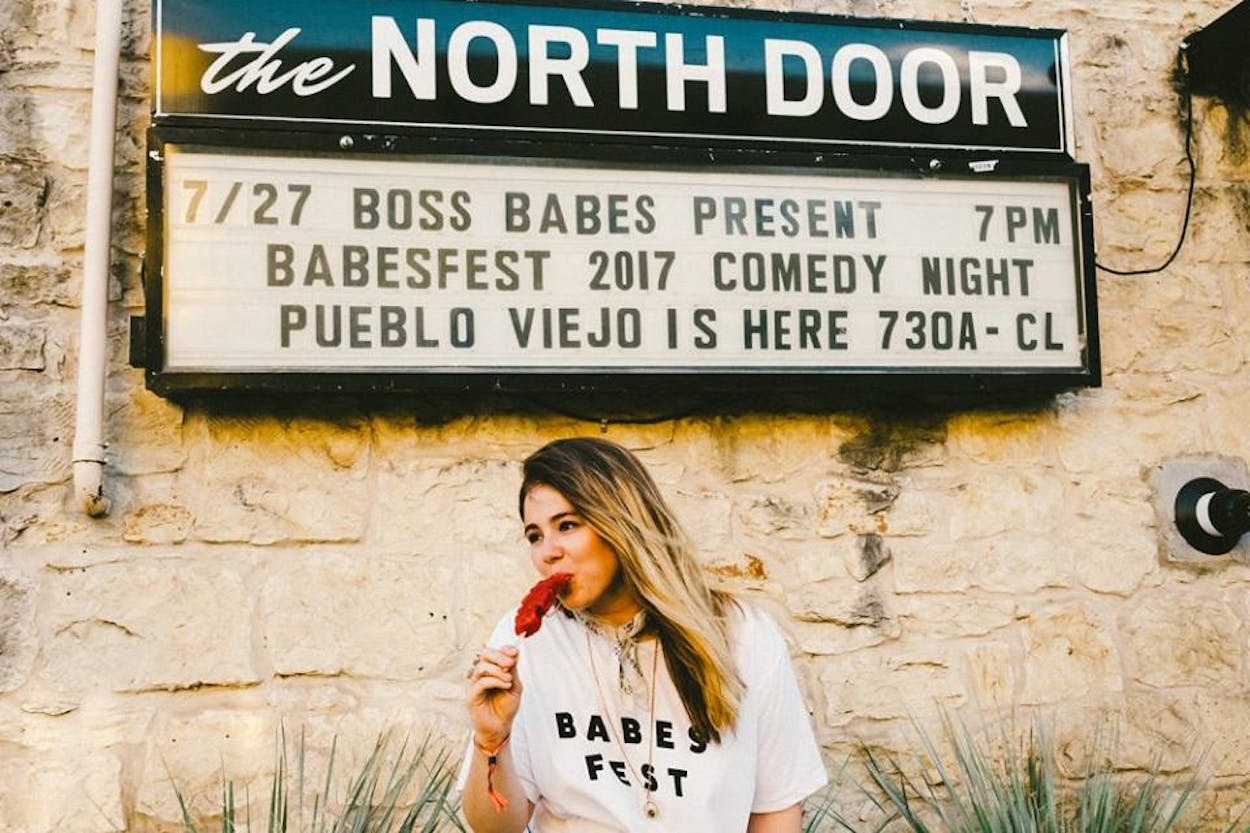On Thursday night, Nikita Redkar stood on stage at the North Door, casually cracking jokes to the remaining audience at the end of the night. Her stand up set had been at times culturally specific to her Indian heritage, and at other times lightly political. Redkar commented on the women who rushed to get IUDs inserted before the Trump administration entered the White House, calling them optimistic because “they thought they were going to be in the mood to have sex with a man” during President Trump’s term.
That night, a crowd of mostly women, with a few sprinkling of men through the audience, laughed through nearly five hours of stand up, improv groups, and video clips. They chuckled through Ngozi Kim’s short video “Happy Wife, Happy Life” and the ridiculous twist at the end, they cackled along to the clip by the Dynamite Sisters, who showed a video titled “Bubby and Pearl,” a faux reality show clip that followed a couple who inexplicably seemed to live in a junkyard. Avery Moore joked about Southern rock being Christian based, but cocaine fueled and ended her set with an impression of Blanche Devereaux from The Golden Girls welcoming her to heaven (“There are men here just for pleasure,” she said in a slow drawl with a head toss). Carina Magyar talked about Texas’ so-called bathroom bill, something she’d been actively opposing. “It turns out they think I’m going to do sex on people while they poo,” she explained to the audience. After briefly pausing for laughter, she added, “I know, it hadn’t occurred to me either!”
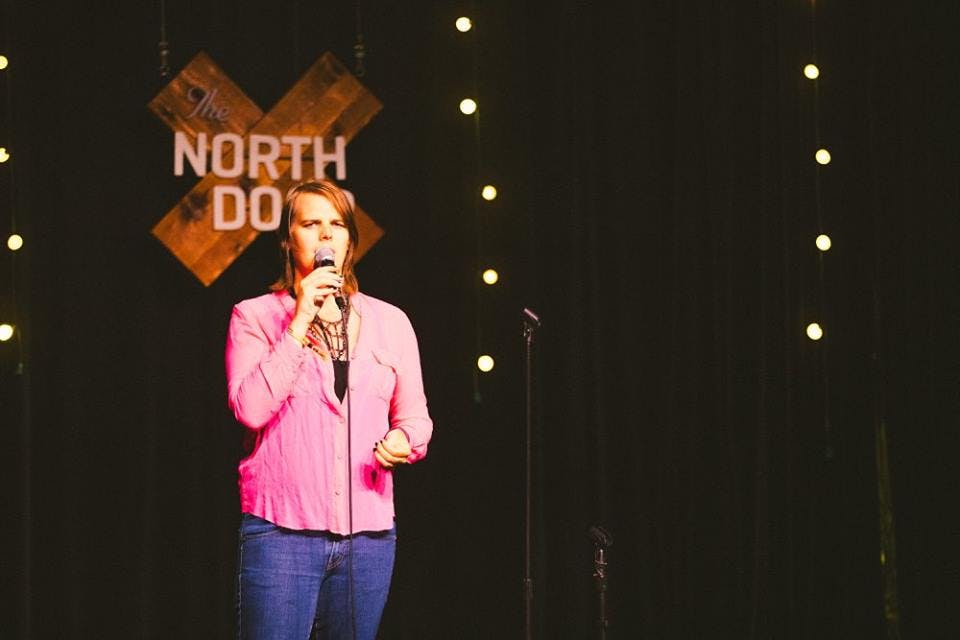
This was the first night of Babes Fest. The three day festival, designed to elevate the creative work that women do that often gets overshadowed, is something that BossBabes ATX, the Austin-based nonprofit that founded Babes Fest, could only dream of when they first started in 2015. Jane Hervey, executive director, founder, and creative producer, and Leslie Lozano, a co-founding member and creative producer, began discussing something that could serve as a resource for creative women in professional settings. Hervey and Lozano grew up in the small town of Rio Hondo, and after they graduated high school, they both moved to Austin, Hervey to study journalism at the University of Texas, and Lozano to work in the fashion industry. Lozano, however, had difficulty finding fashion work and ended up in retail jobs. Around the same time, Hervey was doing an independent study on women in creative industries. As she interviewed them about their experiences in various fields, their responses painted a bleak portrait of what it was like to be a creative, entrepreneurial, working woman.
“Every single person I asked, ‘Do you feel supported in this industry?’ and they’re like ‘No,’” Hervey said. “‘Do you know who to go to if you need something?’ ‘No.’ ‘Do you know other women in your field?’ ‘No.’ ‘Do you feel like you have a community that you can go to?’ ‘No.’ And the answers were just ‘no, no, no.’ And I realized what I am feeling, what Leslie’s feeling, is happening to a lot of women.”
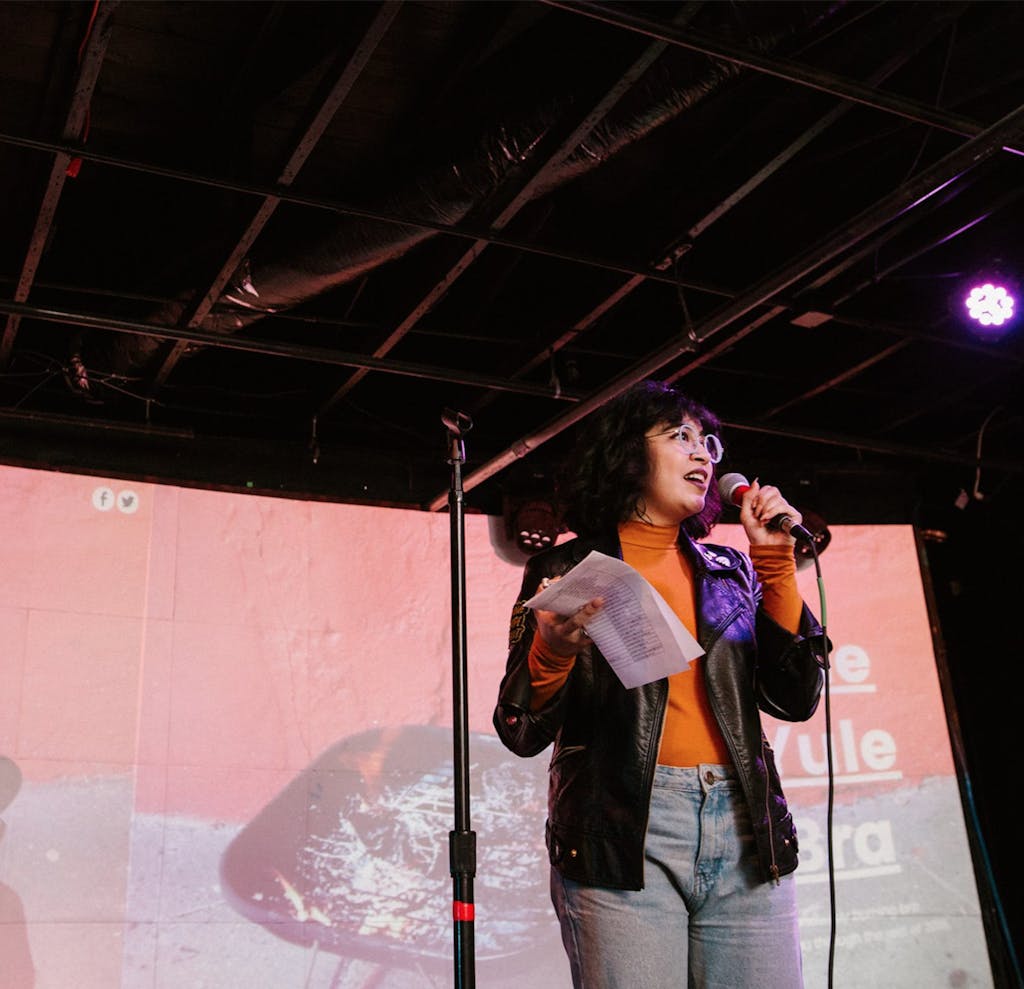
Hervey wanted to do something about it. During a conversation with Lozano and a few other friends, they discussed creating a community for women like the ones Hervey had been interviewing to exchange experiences and share resources. With Lozano on board, their initial plans for BossBabes ATX included monthly meet-ups for women where they could talk “about work, activism, and their creative fields and art.” With that in mind, they created a Facebook event, “#bossbabesatx First Coffee Meet,” on May 14, 2015 at Friends & Neighbors, a vintage store and coffee shop on Cesar Chavez. Within a week, 500 people had RSVP’d.
“We got so many RSVPs within the first week that we thought there was a glitch on the Facebook page,” Lozano said. When nearly 900 people said they would attend, they realized that they would need to limit the capacity to 200. They created an more official RSVP list to better cap the amount of people who could attend. Pictures from the event show a dense crowd of women crammed into the backyard of Friends & Neighbors. Comments on the Facebook event are filled with women excited for the event, people swapping RSVPs after last minute cancellations, and those who aren’t able to attend asking for updates on future events. Although the first meet didn’t go anything like they’d anticipated, they were satisfied. But it also made them realize they needed to change their approach or abandon it completely.
“After that day, we came together and were like, ‘OK, we can either keep doing this or stop right now because it’s already overwhelming,’” Lozano said. “We decided to keep going and put more of a structure behind what we do versus just bringing people together. We needed to figure out a way that would be best for everyone that attended.”
They made a few changes, such as charging for events (Hervey said she spent nearly $1,000 of her own money for the first event, something she quickly realized would not be sustainable), and diversified the types of meet-ups. Eventually, BossBabes ATX rolled out workshops called “She Talks,” wellness retreats, fundraisers, and happy hours, in addition to their bi-monthly meets.
Part of that overall strategy was Babes Fest, which first happened in March 2016. The self-described “festival nerds” combined their love of those types of gathering with a desire to focus on arts such as comedy, music, and film in a female-focused setting. Citing statistics about the gender pay gap and the paltry number of acts including women typically booked a festivals, Hervey explained that they wanted Babes Fest to be a “symbol of what a festival could be if it was entirely women inclusive.”
The original Babes Fest was one day, March 15, in the middle of South by Southwest. They rented out Salvage Vanguard Theater, which has since closed, and booked 27 acts covering the spectrum of music, film, and comedy. When I asked Hervey and Lozano what they learned from that first festival, they both laughed.
“During [SXSW] everything is more expensive, everyone is more stressed out: venue managers, equipment rental folks, artists, musicians, etc,” Hervey explained. That already made production harder than it had to be. It also meant that “everyone’s just not paying attention” with everything else happening in the city. They ran into a few technical issues that day: an A/C unit went out and they kept losing power for their sound equipment so performers would lose audio for their sets. The entire event was “very DIY, but it was still very beautiful,” Hervey said, still impressed that people stepped away from work and SXSW to attend.
This year’s Babes Fest was spread across three days and three locations. Thursday night was comedy night at the North Door, Friday night they screened films at Austin School of Film, and on Saturday night musicians performed at Empire Control Room’s indoor and outdoor stages. I’ve attended a few BossBabesATX events, taught at one of their workshops, and attended and had my web series screened at both Babes Fests. The sense of order this year sharply contrasted with the slightly chaotic feeling from 2016. Because of the three night set up, there were more options (Lozano says they booked a total of 52 acts this year), but it felt as if there was enough time to see them all.
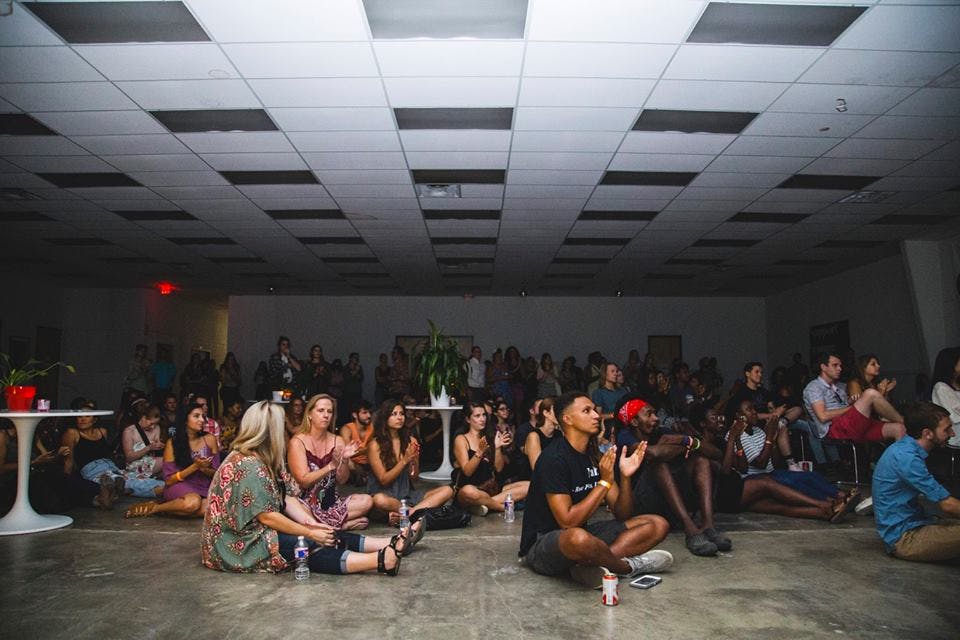
On Friday night, there was a set schedule for four films in one large room in the middle of the building, while other short films played on a loop in three adjoining rooms, giving the audience a chance to meander. The fest included the short work by Austin-based artists such as B. B. Araya, Mireydi Nunez, and Alex Thomas, and the night ended with a feature-length screening of Jackson, a feature-length documentary by Maisie Crow about abortion access in the face of attempts to close the last abortion clinic in Mississippi. San Antonio-based artists such as Polly Anna and Femina-X, Sam Lao from Dallas, as well as local Austin acts such as Melat and Magna Carda rooted Saturday’s music portion. Hervey reported that 259 people attended Babes Fest on Thursday night, 221 on Friday, and 453 people on Saturday.
At Empire Control Room, I spoke with Ashley Brand, a nurse’s aid who’d recently returned to Austin after moving away. Brand’s friend explained the festival to her succinctly: “Women’s empowerment.” Although she hadn’t known what to expect, Brand was enamored with the environment. “Everyone’s just so comfortable and eccentric, but in a good way,” Brand said. “I love it, I really love it.”
Brand, who talked about how rapidly Austin’s demographic has changed in the past few years, said that she was impressed by how diverse the festival attendees were compared to other Austin events she’d been to recently, noting another place where she and her friends were the only five black people in attendance. I’d also noticed a difference, especially in comparison to my experience at last year’s festival.
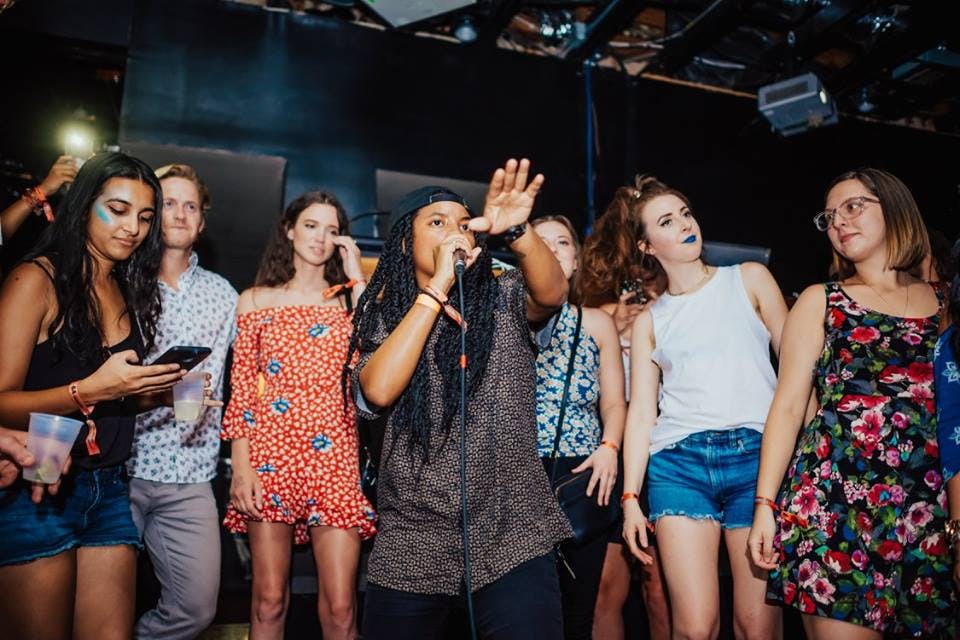
Part of that reason might have to do with with Hervey and Lozano’s messaging for BossBabes ATX. They admitted that in the first year or so, they struggled with how to define what the organization was about, particularly in the face of other people’s expectations. Hervey said they would receive feedback that pressured to be not be political and strictly serve as a professional resource for women and not engage with topics such a intersectional feminism, racism, or police brutality.
BossBabes ATX wasn’t vocal about being an intersectional feminist organization until they rolled out a three-part workshop titled “She Talk: The Intersections of Feminism and Racial Identities” in partnership with the YWCA Greater Austin in May 2016, nearly a year after they launched. Hervey describes that period in 2016 as a shift for the organization. It was around the same time that Trump was gaining traction as a Republican candidate, and Hervey said that it was becoming more clear to them that they needed to be firm on what they stood for as an organization.
“We have our own conversations and we talk about what intersectional feminism means to us,” Lozano said. “[With] everything that’s going on, with our nation right now, we decided to have a three-part series focusing on appropriation, racial discrimination, colorism, touching on all those topics that are now coming to the forefront of conversation and we just wanted a space to have those topics, but also have those questions, just have a place for people to feel that they can ask those questions and just be real and not be judged.”
BossBabes ATX now has five pillars that guide the organization: personal and professional development, activism, the arts, entrepreneurialism, and community infrastructure. With that in mind, they were more intentional with planning this year’s Babes Fest, with everything from their marketing to their booking. Last year Hervey said there hadn’t been much of a process for selecting acts for the festival, but this year they did more thinking about who they wanted at the festival, and how the operate individually and as part of the festival.
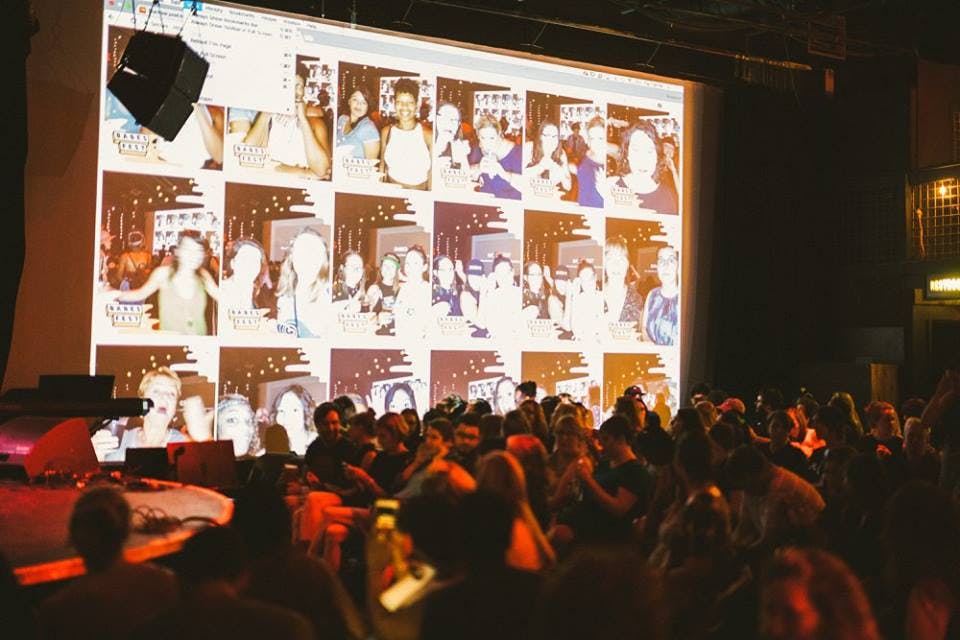
Now that Babes Fest is over, Lozano and Hervey already have more BossBabes ATX events lined up. In August alone, there’s Meet Her Hands (a program introducing female artists who work with their hands) at the Elisabet Ney Museum on August 10, an August 24 meet up at Spider House Cafe, and a She Talks at Byron & Blue on August 31. For the next year, Hervey and Lozano don’t plan to create any new programming, choosing to instead focus on improving their existing roster of events.
On the last night of the festival at Empire, toward the end of the night, I asked Nicole Licea, an Austin-based musician, why she decided to attend Babes Fest.
“I think it’s really important for female identified, women identified, femme identified people to have a space where: one, they feel safe, but also two, this is about them, right?” Licea said. “This is space that is contrary to a heteronormative, patriarchal society that is literally trying to f—king squash us every single day. If you’re going to be progressive and talk about the future, then this is the kind of space we need to create.”


